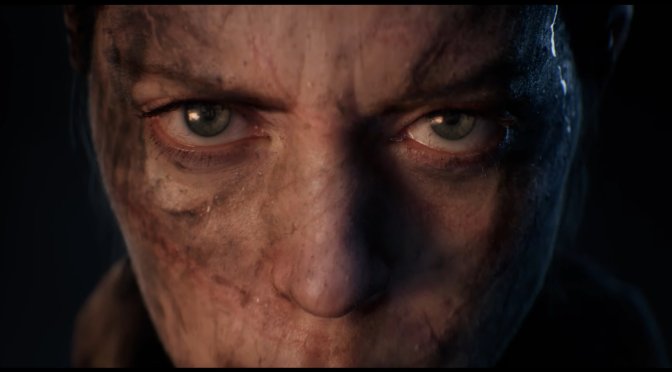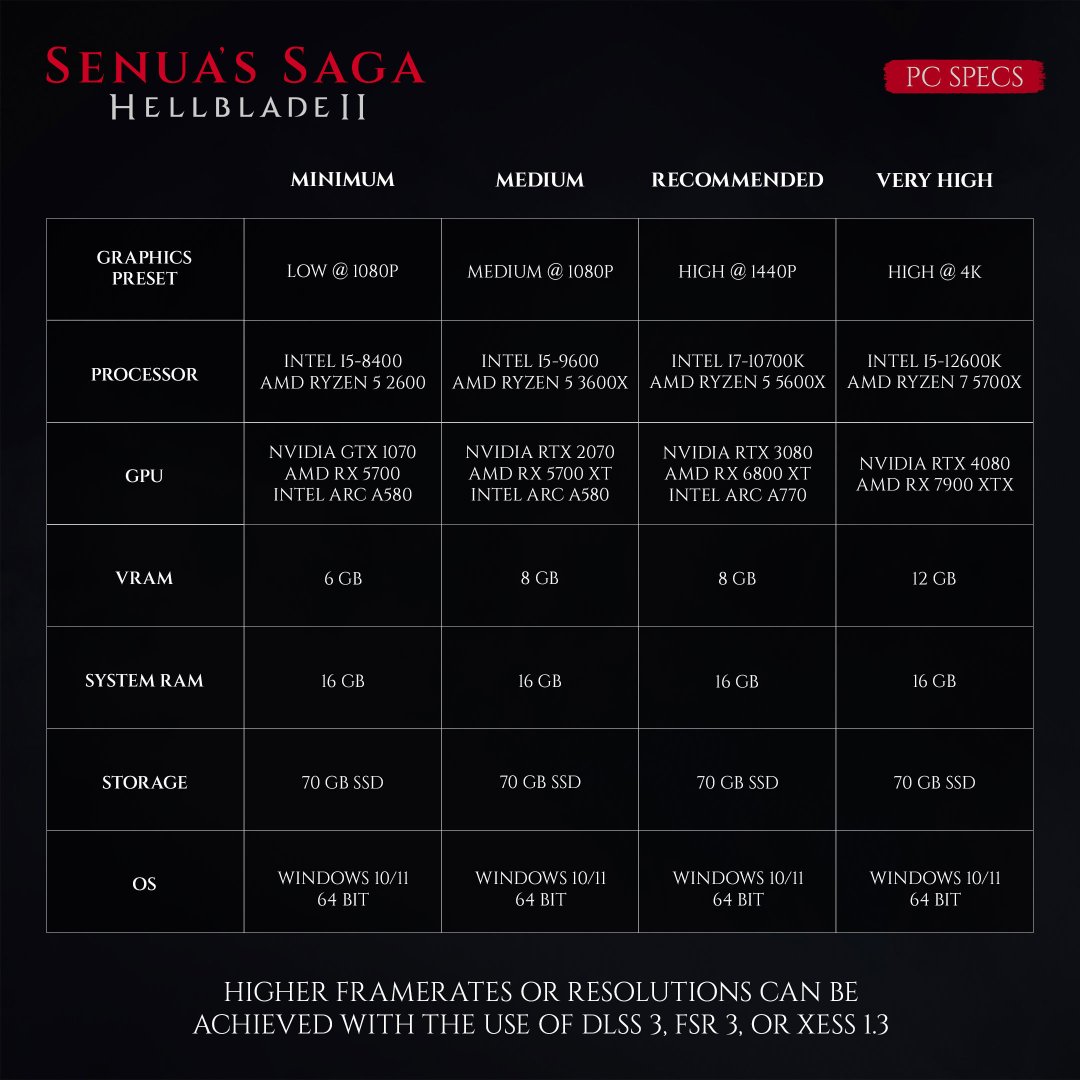A few days ago, Ninja Theory shared the minimum PC system requirements for Senua’s Saga: Hellblade 2. And today, we are happy to share the final and slightly more detailed PC system requirements for it.
For running the game on Medium settings at 1080p, PC gamers will need an Intel Core i5 9600 or an AMD Ryzen 5 3600X with 16GB of RAM and an NVIDIA GeForce RTX2070 or an AMD Radeon RX 5700XT or an Intel ARC A580.
For High/1440p, you’ll need an Intel Core i7 10700K or an AMD Ryzen 5 5600X with 16GB of RAM and an NVIDIA GeForce RTX 3080 or an AMD Radeon RX 6800XT or an Intel ARC A770.
Finally, for High at 4K, you’ll need an Intel Core i5 12600K or an AMD Ryzen 7 5700X with 16GB of RAM and an NVIDIA GeForce RTX 4080 or an AMD Radeon RX 7900XT.
Ninja Theory has also confirmed that the game will support DLSS 3, FSR 3.0 and XeSS 1.3 at launch. So, we can assume that Hellblade 2 will support both Super Resolution and Frame Generation. By using them, PC gamers will be able to hit higher resolutions and framerates.
As I’ve already reported, the console version of Hellblade 2 will be locked at 30fps. As such, the only platform that will be able to offer framerates higher than 30fps or 60fps will be the PC.
Microsoft plans to release Hellblade 2 on May 21st. Since this is a Microsoft game, we won’t have a day-1 PC Performance Analysis (that’s because we don’t have a contact at MS). However, I’ve already purchased the game so I’ll be sure to share my initial PC performance impressions on launch day.
Stay tuned for more!
Senua’s Saga: Hellblade 2 Final PC Requirements

John is the founder and Editor in Chief at DSOGaming. He is a PC gaming fan and highly supports the modding and indie communities. Before creating DSOGaming, John worked on numerous gaming websites. While he is a die-hard PC gamer, his gaming roots can be found on consoles. John loved – and still does – the 16-bit consoles, and considers SNES to be one of the best consoles. Still, the PC platform won him over consoles. That was mainly due to 3DFX and its iconic dedicated 3D accelerator graphics card, Voodoo 2. John has also written a higher degree thesis on the “The Evolution of PC graphics cards.”
Contact: Email


